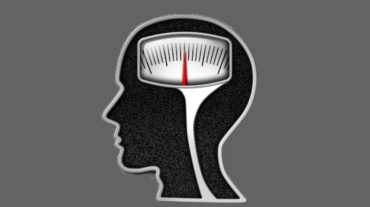
Obesity is like a termite. It will eat up your health slowly and steadily making you hollow from the inside. And we are not just talking about your physical well-being but also your mental health. Don’t believe us? Then this study is a must read for you.
According to a new study published in the Journal of Alzheimer’s Disease an increase in your body weight impacts the brain in such a way that your brain activity and blood flow to the region decreases significantly.
Obesity can give you depression, bipolar disorder, addiction, and more
One of the largest studies linking obesity with brain dysfunction, scientists analysed over 35,000 functional neuroimaging scans using single-photon emission computerised tomography (SPECT) from more than 17,000 individuals to measure blood flow and brain activity.
Low cerebral blood flow is the number one predictor to see whether a person will develop Alzheimer’s disease. It is also associated with depression, ADHD, bipolar disorder, schizophrenia, traumatic brain injury, addiction, suicide ,and other conditions.
“This study shows that being overweight or obese seriously impacts brain activity and increases the risk for Alzheimer’s disease as well as many other psychiatric and cognitive conditions,” explained Daniel G. Amen, MD, the study’s lead author and founder of Amen Clinics, one of the leading brain-centred mental health clinics in the United States.

Alzheimer’s is connected to your bodyweight, says the study
Striking patterns of progressively reduced blood flow were found in virtually all regions of the brain across categories of underweight, normal weight, overweight, obesity, and morbid obesity. These were noted while participants were in a resting state as well as while performing a concentration task.
In particular, brain areas noted to be vulnerable to Alzheimer’s disease, the temporal and parietal lobes, hippocampus, posterior cingulate gyrus and precuneus, were found to have reduced blood flow along the spectrum of weight classification from normal weight to overweight, obese, and morbidly obese.
Commenting on this study, George Perry, PhD, Editor-in-Chief of the Journal of Alzheimer’s Disease and Semmes Foundation Distinguished University Chair in Neurobiology at The University of Texas at San Antonio, stated, “Acceptance that Alzheimer’s disease is a lifestyle disease, little different from other age-related diseases, that is the sum of a lifetime is the most important breakthrough of the decade. Dr Amen and collaborators provide compelling evidence that obesity alters blood supply to the brain to shrink the brain and promote Alzheimer’s disease. This is a major advance because it directly demonstrates how the brain responds to our body.”

Although the results of this study are deeply concerning, there is hope. Dr Amen added, “One of the most important lessons we have learned through 30 years of performing functional brain imaging studies is that brains can be improved when you put them in a healing environment by adopting brain-healthy habits, such as a healthy calorie-smart diet and regular exercise.”
(With inputs from ANI)
Select Topics of your interest and let us customize your feed.
PERSONALISE NOW